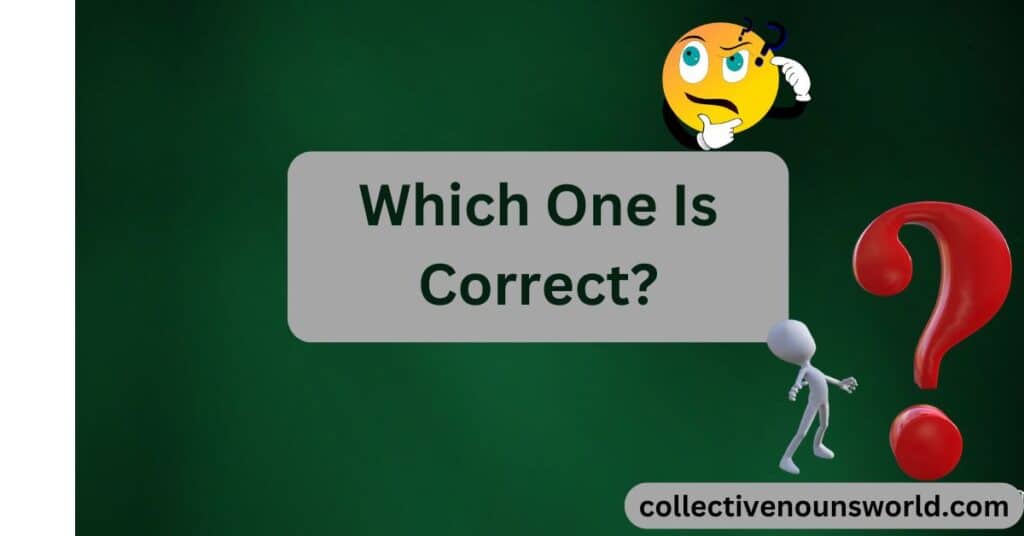“Other Than” or “Other Then”—it’s a common mistake that even seasoned writers make, yet mastering the difference between these two phrases can elevate your language and sharpen your communication skills. When used correctly, “other than” can help you exclude or highlight exceptions, adding precision and clarity to your writing. But when you mistakenly use “other then,” you risk confusing your audience and sounding less polished. In a world where clear communication is key, knowing how to use these phrases properly will not only improve your grammar but also help you stand out as a more confident and effective writer. Let’s dive into the rules and real-world examples to set you on the right path.
Understanding the Difference Between “Other Than” and “Other Then”
The main difference between “other than” and “other then” lies in their meanings and usage. “Other than” is used to indicate exclusion or exception. It means “except for” or “apart from.” For example, when you say, “Other than coffee, I don’t drink any other beverages,” you are saying you don’t drink anything except coffee. “Other than” is a preposition that shows something is being excluded from a list or category.
On the other hand, “other then” is incorrect in English. “Then” refers to time or sequence. It is used to indicate what happens after something else, such as in time expressions. For instance, in the sentence “We ate lunch, then we went for a walk,” “then” shows the sequence of actions. Since “other” refers to things being excluded or different, using “then” is a misused phrase. It makes no sense to say “other then” when you are trying to talk about exclusion.
What Does “Other Than” Mean?
“Other than” is a prepositional phrase that shows what is excluded. It is used when you are talking about something that is different or separate from other things in a group. In other words, it introduces exceptions. For example, in the sentence “I don’t like any fruits other than apples,” the phrase “other than” highlights the exclusion of all fruits except apples.
This phrase is also often used in comparisons. You might say, “Other than her height, she is very similar to her sister.” Here, “other than” is used to compare two people, except for their height.
What Does “Other Then” Mean and Why Is It Incorrect?
“Other then” is simply incorrect in English. “Then” is not meant to show exclusion, it is used in time expressions or sequences. When people use “other then”, they confuse the idea of exclusion with time, which is grammatically wrong.
Consider the sentence “I like everything other then the movie.” This sentence would sound strange and confusing because the correct phrase would be “other than”. “Then” cannot be used in this context, as it is for expressing time, not exclusion. The phrase “other then” is one of the most common grammar mistakes English learners make, so it’s essential to avoid it.
Read more about Momma or Mama: Simple Grammar & Spelling Tips
Side-by-Side Comparison of “Other Than” vs. “Other Then”
Let’s look at a simple comparison of the two phrases. In the table below, we will compare correct usage with incorrect usage:
| Correct Usage | Incorrect Usage |
| “I like all foods other than pizza.” | “I like all foods other then pizza.” |
| “Other than her opinion, we agree.” | “Other then her opinion, we agree.” |
| “We have no plans other than the movie.” | “We have no plans other then the movie.” |
As you can see, “other than” is the right phrase when excluding something, while “other then” doesn’t make sense and is grammatically wrong. This is one of the most common grammatical errors that can confuse your audience.
Common Mistakes: Using “Other Then” Instead of “Other Than”
One of the most misused phrases in English is “other then”. Many people mistakenly use “then” instead of “than” due to the similarity in sound. However, “then” should only be used to talk about time or sequences. “Other then” does not make sense when you are excluding or making a comparison.
If you want to avoid grammar errors, always remember that “than” is used for comparisons and “other than” for exclusions. A good rule of thumb is that “then” can be replaced by “than” only in comparisons, not in exclusion phrases.
Why “Other Then” is Incorrect in English
Using “other then” instead of “other than” is a common grammar mistake. When you mix up these two phrases, it results in confusion and disrupts the flow of your writing. Always use “other than” when you want to express exclusion. For example, you can say, “Other than my brother, everyone is coming to the party.” The phrase “other than” correctly shows that your brother is being excluded from the group.
Everyday Usage: How to Use “Other Than” Correctly
“Other than” is very common in everyday English. You’ll hear it used when people want to exclude something or make a comparison. For example, you might say, “I have no hobbies other than reading.” This sentence tells others that reading is the only hobby you have, and everything else is excluded.
When you use “other than” in writing, it can help you contrast or compare things clearly. For instance, “Other than a few minor mistakes, your essay was great.” This sentence highlights the exception of mistakes.
Examples of Correct Usage with “Other Than”
You can use “other than” in many situations. For instance, “Other than the weather, we had a great day.” Here, you are excluding the weather as a negative factor in an otherwise enjoyable day.
In formal writing, “other than” helps to specify exceptions. “The company does not offer any services other than consulting.” This sentence clearly shows that consulting is the only service the company provides.
Mistakes to Avoid with “Other Than”
One common mistake with “other than” is placing it in the wrong part of the sentence. For example, “I want nothing other than to go home” should be written as “I want nothing except to go home.”
Another mistake is using “other than” when you should use “than” for comparison. For example, “He is better other than me at tennis.” The correct phrase would be “He is better than me at tennis.”
Read more about Shiny vs Shiney: The Correct Spelling Explained
Which is Correct: ‘Other Than’ or ‘Other Then’?
As we’ve explained, “other than” is the correct phrase for showing exclusion, while “other then” is a mistake. Understanding the grammar rules behind these two terms is vital for effective communication. “Other than” is a preposition and is used to exclude something, while “then” is a time conjunction and is used to indicate what happens next.
Understanding the Grammar Rules Behind These Phrases
“Other than” works in situations where you are excluding something or making a comparison. “Than” is used when you want to show a comparison between two things, such as “She is taller than me.” On the other hand, “then” indicates time or sequence, like in “We went to the store, then we had dinner.”
How to Use “Other Than” in Sentences
The key to using “other than” correctly is to remember its role in showing exclusion. For example, “Other than his attitude, the project was successful.” This sentence indicates that the only negative factor was his attitude. You can also use “other than” for comparisons, like “She looks like no one other than her mother.”
Common Phrases with “Other Than”
Here are some common phrases where “other than” is used correctly: “Other than that,” “No one other than,” and “Other than expected.”
“Other Than” in Negative and Positive Sentences
“Other than” works in both negative and positive sentences. In a negative sentence, you might say “Other than the noise, I had a peaceful sleep.” In a positive sentence, you could say “I like all colors other than yellow.”
Breaking Down the Meaning of ‘Other Than’
“Other than” is used to show what is excluded from a larger group or category. It is an important phrase when you want to highlight exceptions.
Definition of ‘Other’
“Other” is a word used to refer to something different from what has already
been mentioned. It helps us talk about something that isn’t part of the usual group.
Synonyms for ‘Other’
Some synonyms for “other” include “different,” “another,” and “alternative.”
Definition of ‘Than’
“Than” is a comparison word used to show the difference between two things. For example, “She is taller than her brother.”
Synonyms for ‘Than’
Some synonyms for “than” in comparisons include “compared to” and “in relation to.”
Read more about Privilege vs Priviledge: Correct Spelling Explained
Pronunciation: How to Pronounce “Other Than” Correctly
When you say “other than,” make sure to stress “than” clearly. The pronunciation of “than” is /ðæn/, and it should sound different from “then” (/ðɛn/).
Sample Sentences Using “Other Than” in Context
Here are some examples: “Other than my work, I don’t have much to do.” or “I don’t know anyone other than Sarah who enjoys hiking.”
Final Thoughts: Is “Other Then” Ever Correct?
No, “other then” is never correct. The correct phrase is always “other than” when you mean exclusion. Understanding the difference between these two terms will help you avoid grammar errors and improve your writing.
A Recap of Key Points on “Other Than” vs. “Other Then”
To summarize, “other than” should be used when you are talking about exceptions or exclusions, and “then” should only be used when talking about time or sequence. Always be mindful of these distinctions to avoid grammar mistakes and make your writing clearer.
Read more about Forrest Or Forest: The Right Spelling and When to Use Each
Using “Then” to Indicate Time
“Then” is used to express time or the order of events. For example, “First, we went to the store; then, we went home.”
Commonly Confused Words with “Then”
The most common confusion with “then” happens with “than”, especially in comparisons. Remember, “than” is used for comparing things, while “then” is used for indicating time.
Other Uses of “Then” Beyond Time
“Then” can also be used in conditional statements, like “If you don’t hurry, then you will miss the bus.”
How to Use “Than” for Comparisons
“Than” is always used for comparisons. For instance, “He is smarter than his brother.”
More Than vs. More Then: Key Differences
Finally, when comparing quantities or amounts, use “more than.” The phrase “more then” is a grammar error. Always use “more than” when talking about quantity.
How to Use “More Than” Correctly
For example, “I have more than enough time to finish the project.” Always use “more than” when you mean quantity or comparison.
FAQs
What is the difference between “other than” and “other then”?
“Other than” is used to mean “except for,” while “other then” is incorrect and should be avoided in writing.
What are the synonyms of ‘other than’?
Synonyms for “other than” include “except,” “besides,” “apart from,” and “excluding.”
Is “other then” ever correct to use in a sentence?
No, “other then” is grammatically incorrect; the proper phrase is “other than.”
Which is correct, than or then?
“Than” is used for comparisons, while “then” refers to time or sequence.
What is the rule for then and than?
Use “than” for comparisons (e.g., “bigger than”) and “then” for time or order (e.g., “back then”).
How do you use “other than”?
“Other than” is used to exclude or indicate something different, e.g., “I have no plans other than work.”
Conclusion
mastering the use of “other than” and “other then” can greatly improve your writing. Remember, “other than” is used to indicate exceptions or exclusions, while “then” is used to refer to time or sequence. Using these correctly helps avoid common grammar mistakes and makes your writing clearer.
By understanding these simple rules, you’ll avoid confusion and sound more polished. With practice, you’ll confidently use these phrases and elevate your communication, making your writing more precise and professional.

Luna Jasper is an experienced blogger with a passion for language and grammar. At **Collective Nouns World**, she shares her expertise in exploring the fascinating world of collective nouns, making learning both engaging and fun. With years of writing and research under her belt, Luna’s insightful articles help readers understand and appreciate the English language.







